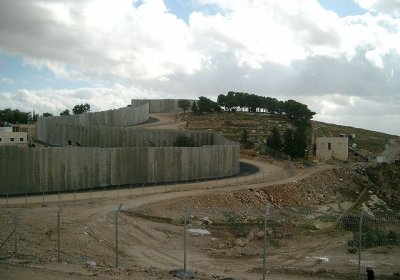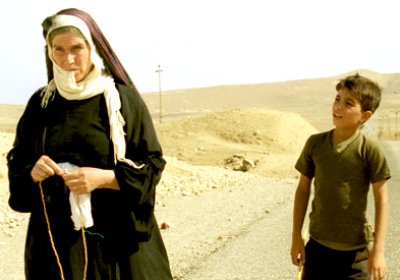PERTH — Jewish American author Anna Baltzer spoke to a packed audience of more than 100 people at a forum hosted by Friends of Palestine WA on October 21.
She began by explaining that there were differences between the words "Jewish" (relating to faith or kinship), "Israeli" (relating to citizenship in the state of Israel) and "Zionist" (a political ideology).
Most of her presentation documented the illegal occupation of Palestinian land sponsored by the state of Israel and the effects of that occupation.
Israel
Anna Baltzer is a US activist who worked in Palestine with the International Women's Peace Service documenting human rights abuses. She is author of Witness in Palestine: A Jewish American Woman in the Occupied Territories.
Boats — an enemy evoked by major Australian political parties to win elections — have become a symbol of international resistance to Israel’s blockade of the Gaza Strip.
This is particularly the case since Israeli commandos attacked an aid flotilla headed for Gaza in May, killing nine people.
With this in mind, the Berlin Coalition for Gaza (BCG) launched a one-boat “flotilla” through an inner-city Berlin canal on October 15.
“History was made early today on the other side of the world”, said Grant Morgan, an Auckland-based organiser of the Kia Ora Gaza convoy bringing humanitarian aid to Gaza in defiance of Israel’s siege. Kia Ora is a six-person New Zealand team that has joined the Viva Palestina covoy.
“The vicious Israeli siege of Gaza has been broken by an international aid convoy of 400 volunteers from 30 countries driving 150 vehicles carrying vital medical supplies worth NZ$7 million.”
The abridged statement below was released by the South African Palestine Solidarity Committee (PSC) on September 29.
* * *
After a huge mobilisation by South African academics, the senate of the University of Johannesburg (UJ) voted today “not to continue a long-standing relationship with Ben Gurion University (BGU) in Israel in its present form and has set conditions for the relationship to continue”.
On May 31, Australian activists Ahmed Talib and Jerry Campbell were on board the Mavi Marmara, in international waters, en route to Gaza to deliver much needed aid to its besieged residents. Israeli commandos attacked the ship and shot dead nine solidarity activists. Talib was one of several activists shot and wounded. He and Campbell described the attack at a September 22 forum sponsored by Justice For Palestine.
Talib said: “The Israeli siege of Gaza had continued for three years, with world governments and international organisations not really doing anything against it.”
On September 2, direct talks began between the Israeli government and the Palestinian Authority with the US government acting as mediator.
US President Barack Obama has declared the success of these “peace talks” to be a main foreign policy goal of the last two years of his term.
But whatever their outcome, the talks cannot end the conflict because both sides are not evenly represented. The mediator, the US, is the major financial, political and military sponsor of one of the parties to the conflict, Israel.
Peace talks between Israel and the Palestinian Authority started on September 2. After the resumption of negotiations, Israel refrained from attacking Gaza for just two days.
Then it ordered the bombing of two Rafah tunnels that connect the besieged Gaza Strip to Egypt, killing two workers, and leaving two severely injured.
On July 21, the Israeli newspaper Yedioth Ahronoth published an interview with Donald Perera, Sri Lanka’s ambassador to Israel. Perera, the former Sri Lankan Air Force commander and Chief of Defence Staff, thanked Israel profusely for its support in the fight against the Liberation Tigers of Tamil Eelam (LTTE).
At the beginning of August the Israeli government announced it would cooperate with one out of two international United Nations-sponsored investigation commissions into the May 31 Gaza Freedom Flotilla massacre. UN General Secretary Ban Ki-moon claimed the move was “unprecedented”.
The commission is composed of four people, one chosen by Turkey, one chosen by Israel and two chosen from a list provided by Israel. The latter two are former prime minister of New Zealand Geoffrey Palmer, who will be the chair, and outgoing Colombian President Alvaro Uribe, who will serve as vice-chair.
The Melbourne International Film Festival (MIFF) apparently screened Iraqi film Son of Babylon against the wishes of the filmmakers — who object to the sponsorship of the MIFF by the apartheid state of Israel.
Israel faces an international boycott, divestment and sanctions campaign by opponents of its oppression of Palestinians. As with the international campaign against South African apartheid, this includes a call for a cultural boycott.
Early on July 27, Israeli bulldozers, flanked by helicopters and throngs of police, demolished the entire Bedouin village of al Araqib in the northern Negev desert. Despite having land rights cases pending in the court system, hundreds of al Araqib villagers were instantly made homeless a month after Israeli police posted demolition orders.
Eyewitness reports say the police were accompanied by several busloads of right-wing Israeli civilians who cheered during the demolitions.
- Previous page
- Page 33
- Next page











